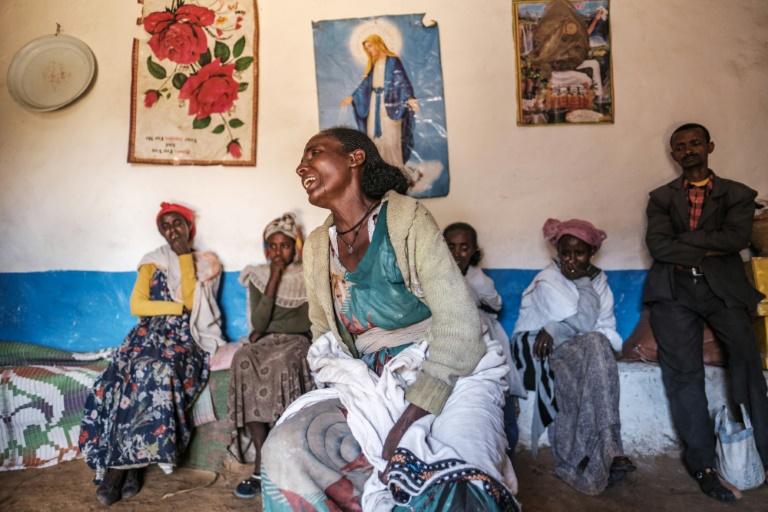
UNITED NATIONS (UNITED STATES) - UN leaders on Thursday alleged possible crimes against humanity in Ethiopia's Tigray region including by Eritrean troops as they urged a pullout by the neighboring country, which denies involvement.
The United Nations also warned of potentially catastrophic hunger as it pleaded for urgent humanitarian access, although divisions at the Security Council stopped it from showing an international common front.
A week after Amnesty International said that Eritrean troops massacred hundreds of people, the UN rights chief, Michelle Bachelet, joined calls for a probe and appealed for Ethiopia to let in investigators.
Her office said it had corroborated information about incidents including indiscriminate shelling in the regional capital of Mekele and towns of Humera and Adigrat in November when Ethiopia launched an offensive.
It had also verified "reports of grave human rights violations and abuses including mass killings in Axum, and in Dengelat in central Tigray by Eritrean armed forces."
A preliminary analysis of the information indicated that "serious violations of international law, possibly amounting to war crimes and crimes against humanity, may have been committed by multiple actors in the conflict," it said in a statement.
"Without prompt, impartial and transparent investigations and holding those responsible accountable, I fear violations will continue to be committed with impunity, and the situation will remain volatile for a long time to come," she said.
The UN High Commissioner for Human Rights office also lamented what it said were continuing abuses including sexual violence and extrajudicial killings.
Prime Minister Abiy Ahmed ordered the offensive after accusing the local ruling party, the Tigray People's Liberation Front, of attacking federal army camps.
Abiy -- who won the Nobel Peace Prize in 2019 -- declared victory after pro-government troops took Mekele in late November, although the TPLF vowed to fight on, and clashes have persisted in the region.
- Eritrea 'must leave' -
The United Nations for the first time also publicly pointed the blame at Eritrea, Ethiopia's onetime rival that has found common cause in Tigray. Both the Addis Ababa and Asmara governments have denied the Eritrean presence.
"It is now abundantly clear to all, and openly acknowledged by officials of the government administration in Tigray, that Eritrean defense forces are operating throughout Tigray," the UN under-secretary-general for humanitarian affairs, Mark Lowcock, told a Security Council session on the crisis.
"Countless well-corroborated reports suggest their culpability for atrocities," he told the closed-door, virtual session in remarks seen by AFP.
"Eritrean defense forces must leave Ethiopia, and they must not be enabled or permitted to continue their campaign of destruction before they do so."
Lowcock also called for assistance to be scaled up "dramatically" as he warned of the potential for "catastrophic" hunger in Tigray, with 4.5 million people in need of assistance.
Despite a UN agreement with Ethiopia, humanitarian access in Tigray remains minimal with the United Nations saying that hundreds of thousands of people in rural parts of the region have not been reached.
Ethiopian authorities "provide regular updates on what they're doing on the humanitarian front but then it's, 'look here, there's nothing to see," one diplomat said on condition of anonymity.
The session called by Ireland ended without an agreement on a joint statement with Russia leading opposition along with China and India, arguing that they did not want to intervene in Ethiopia's internal affairs, diplomats said.
The new US ambassador to the United Nations, Linda Thomas-Greenfield, said the Security Council should have issued a statement as the crisis "poses a direct threat to regional peace and security."
"We need to address it immediately, to prevent further atrocities and human suffering," she said.
Diplomats said that the three African nations on the Security Council -- Kenya, Niger and Tunisia -- had supported a statement after reluctance a month ago when they preferred to defer to the African Union.